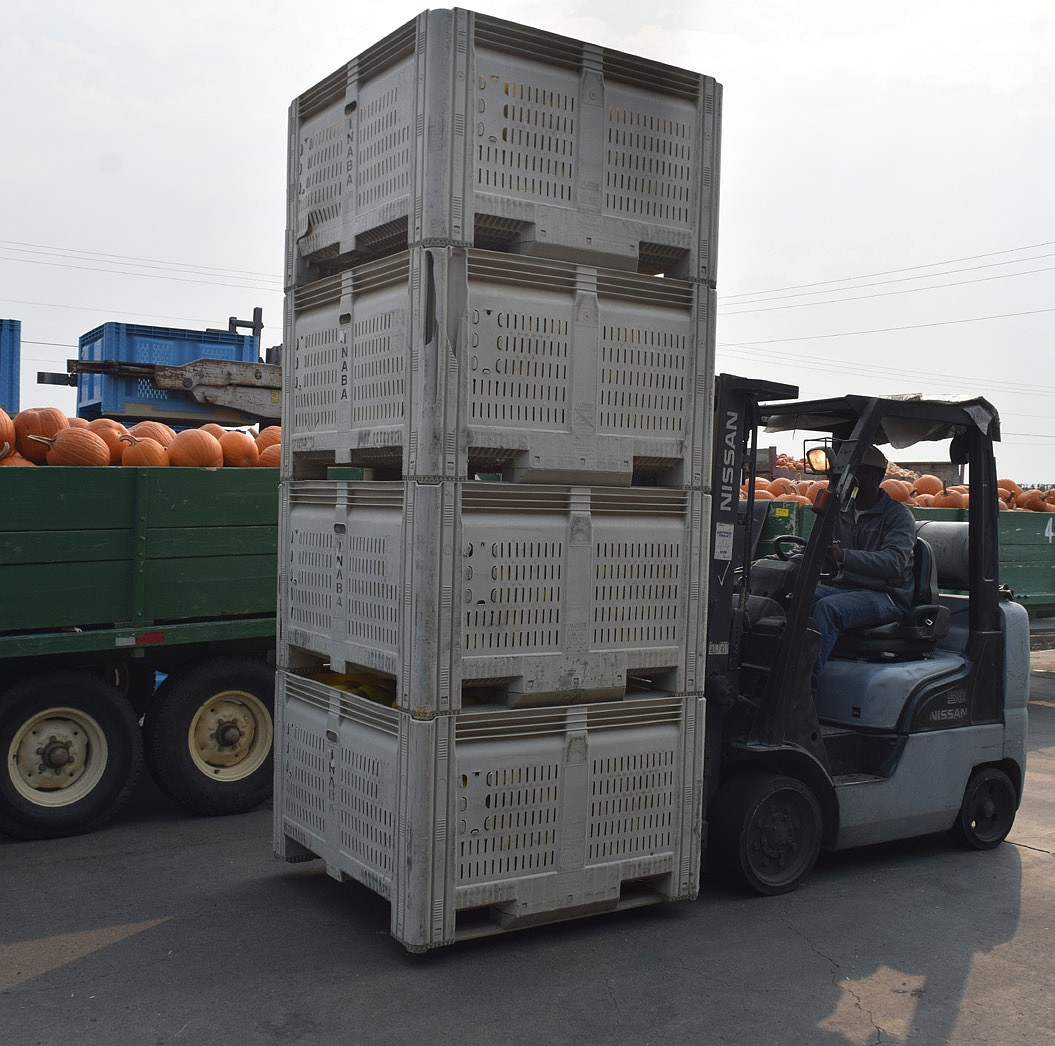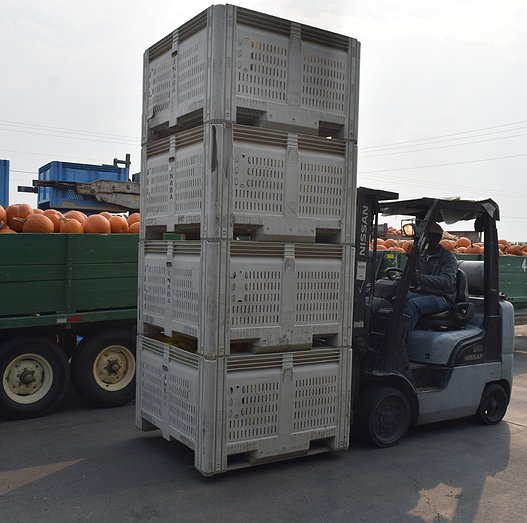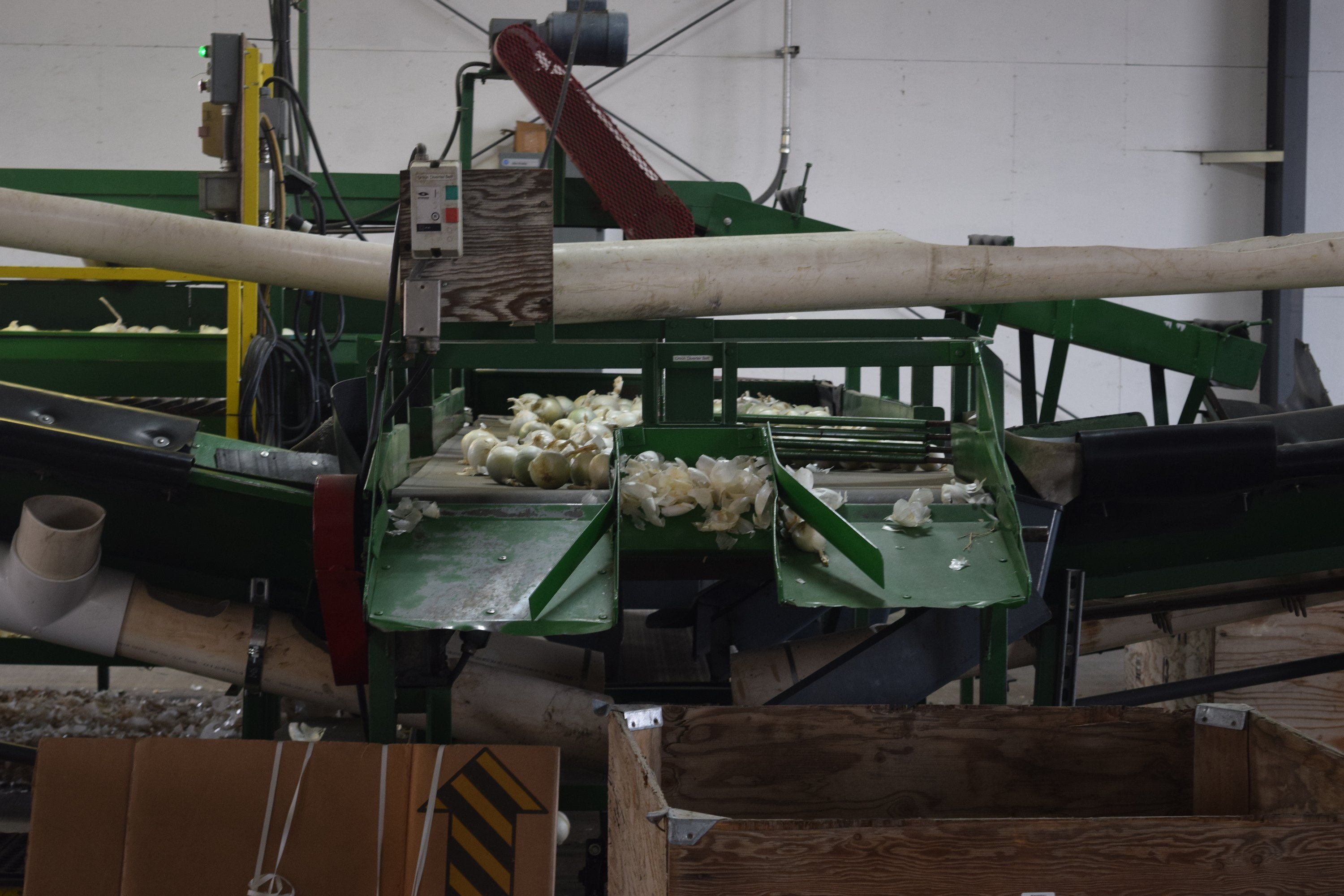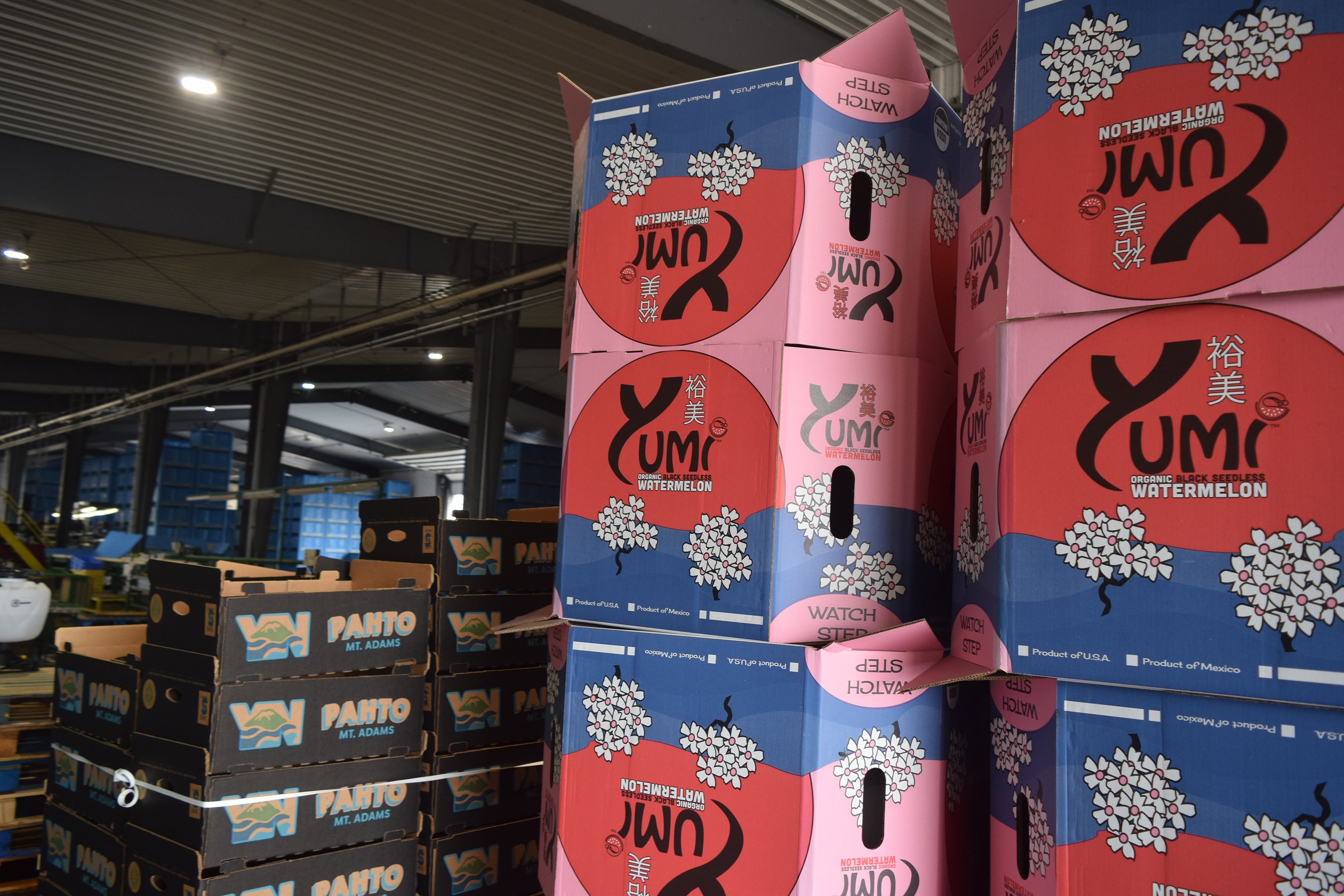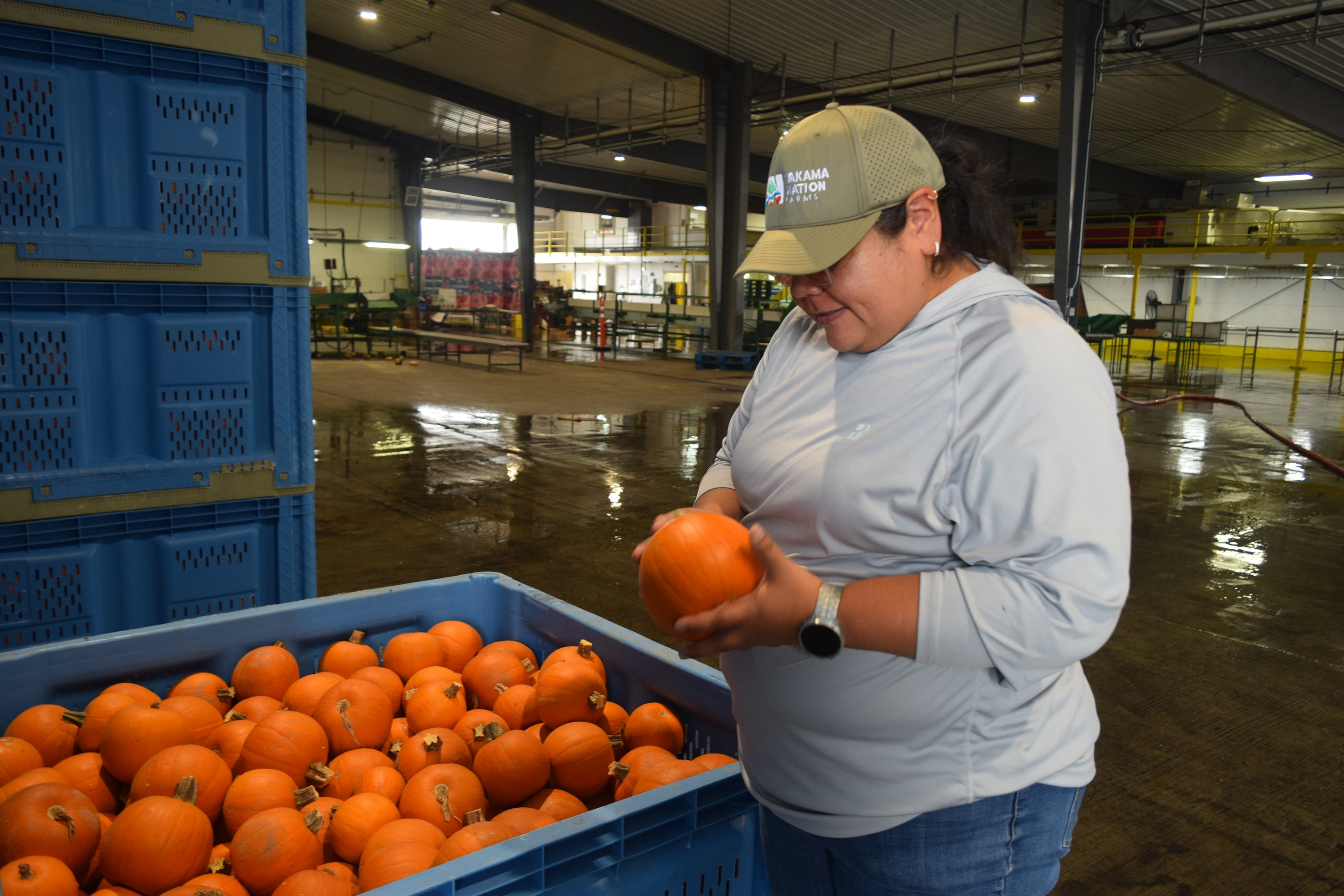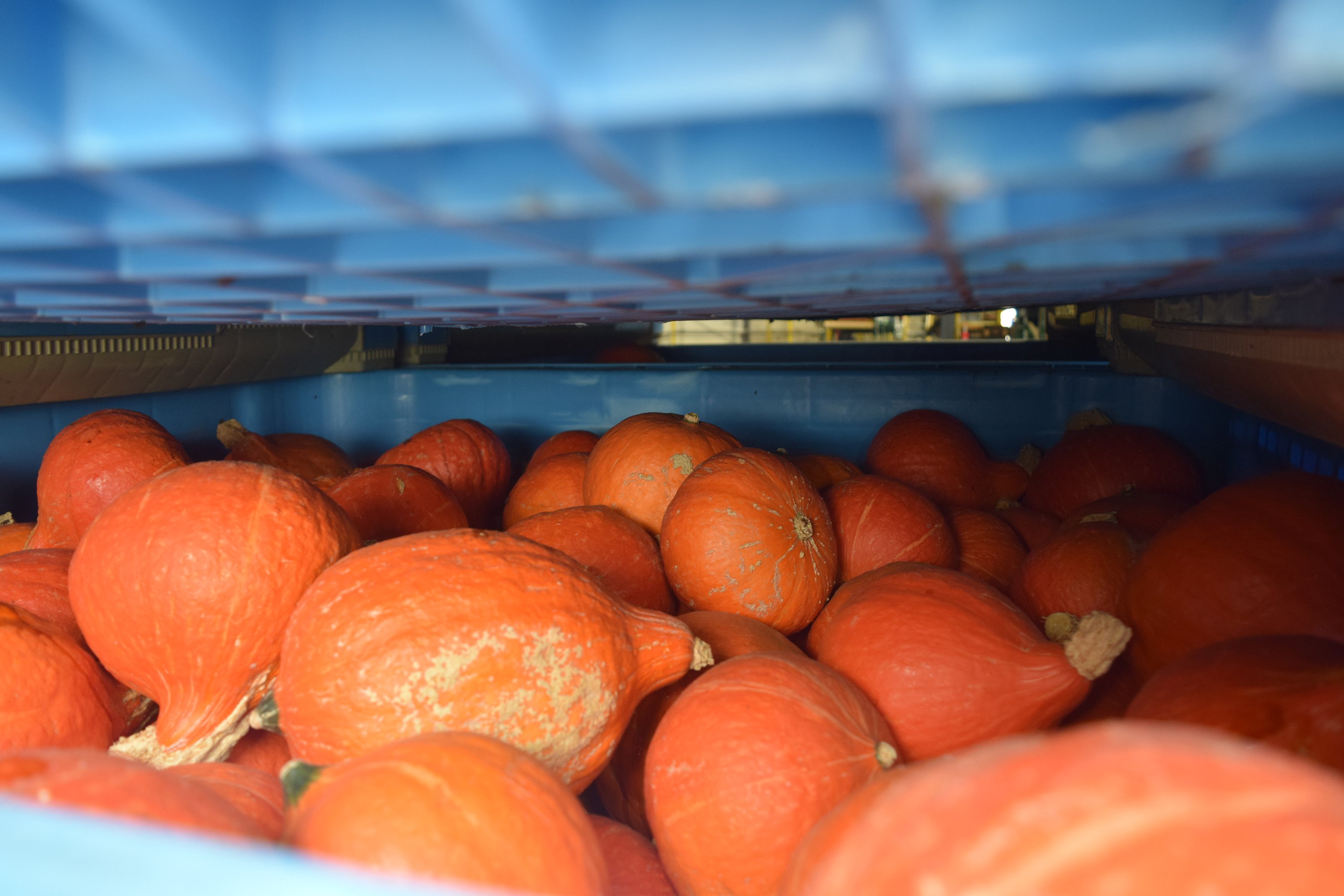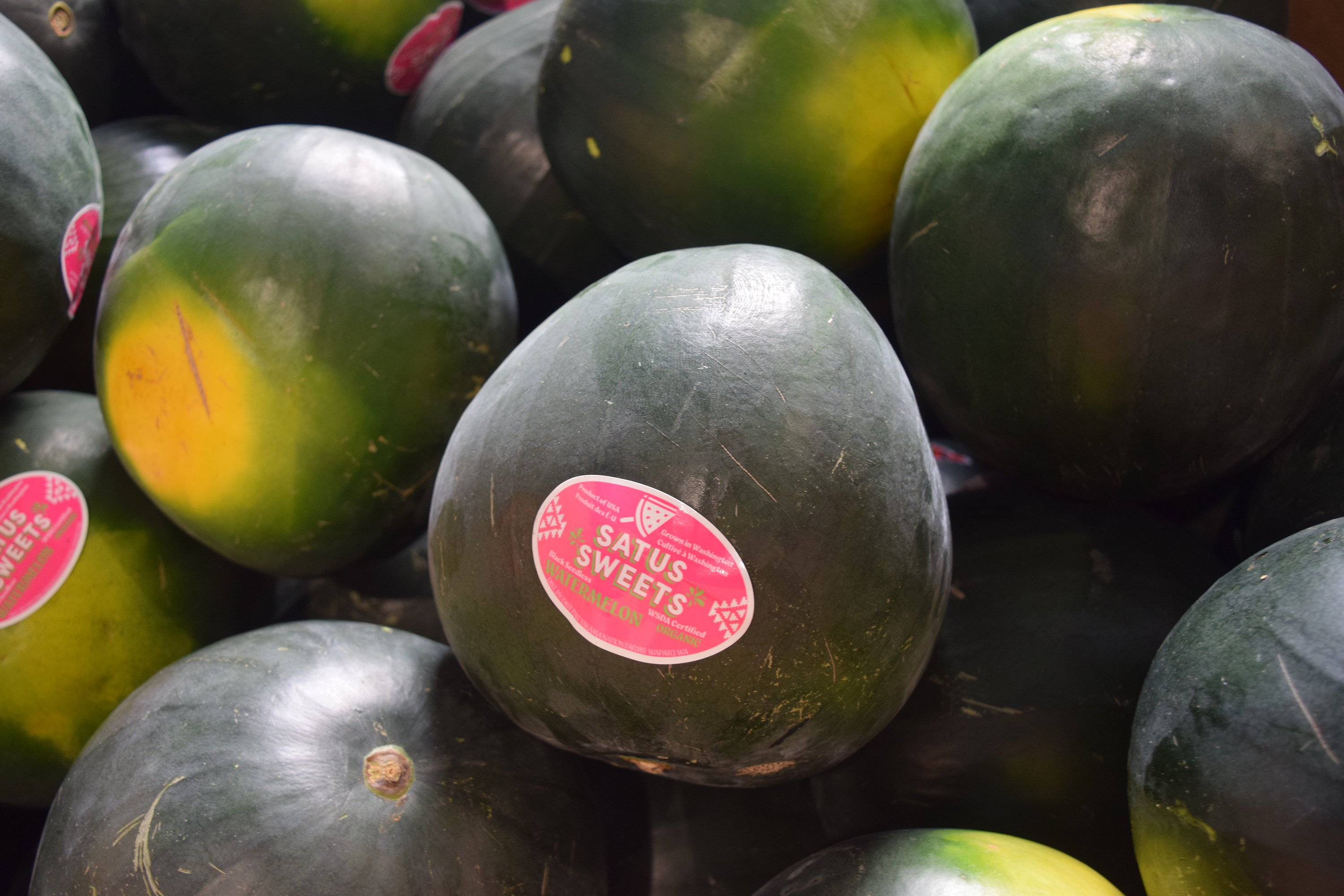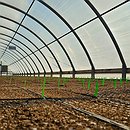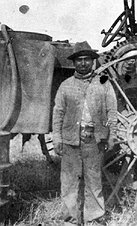Yakama Nation Farms: Celebrating the growth of food, culture
WAPATO – Yakama Nation Farms, a 1,500- acre agricultural enterprise located in the heart of Washington’s Yakima Valley, operates with the mission of fortifying food sovereignty and security for the local community while embracing a rich cultural heritage.
Under the interim leadership of Jonalee Squeochs, the farm has transformed from a historically Japanese-operated enterprise into a tribal business that seeks to provide high-quality organic produce to the Yakama Nation and surrounding communities.
The farm’s history is intertwined with the experiences of both the Yakama Nation and Japanese immigrants.
The farm was originally owned by a third-generation Japanese family, the Inaba family, who began farming in the area in 1907. Shukishi Inabo was part of the wave of Asian immigrants in the early 1900s that moved to the Yakima Valley.
“He was like a director, almost, of helping to shape agriculture in the Yakima Valley,” Squeochs said.
She said he started clearing the land of sagebrush and soon after helped start the construction of the Wapato Irrigation Project. However, land laws in the area were fairly unfavorable to Asian people, Squeochs said. She said tribal members let Inaba use a couple of acres so he could begin farming. He started growing alfalfa and other small-scale crops.
“Then World War II happened and all of the Asian families here in the valley were sent to Wyoming to internment camps,” Squeochs said. “After the war, only about 10% of the families that were from here, returned here. The Inaba family was one of them.”
Squeochs said the only thing the Inabas returned to after the war was the good relationships they had built with neighbors. Everything else they had built was gone.
“There were folks in town who said, ‘Here’s a truck,’ ‘Here’s a tractor, ‘Here’s some stuff to get restarted,’” Squeochs said.
The land they had used before was no longer available but the same neighbors who allowed Inaba to begin farming, let him use other land.
“They went from a couple of acres to what this farm is now at 1,500 acres,” Squeochs said.
In 2021, as the Inaba family sought an exit strategy due to a lack of interest in farming from the next generation, Squeochs said that Mrs. Inaba was advised to go talk to the tribe first and see if there was interest from the Indigenous people in the area.
This prompted negotiations with the Yakama Nation that extended through the pandemic, culminating in the tribe’s formal acquisition of the farm in January 2022. Since then, Yakama Nation Farms has restructured its operations to focus on growing high-quality local vegetables, primarily organic varieties, including zucchini, watermelons and tomatoes.
Some of the original packaging, branding and staff still remain from the Inaba farm, Squeochs said.
Squeochs, who joined the Yakama Nation Farms team in May 2022 and was appointed interim general manager in October 2023, is focused on establishing sustainable farming practices and promoting community engagement. The farm employs around 25 to 30 full-time staff year-round, supplemented by a seasonal workforce during peak harvest times. Squeochs highlights the unique composition of the team.
“We are primarily (Black, Indigenous and People of Color) managed and operated. We have folks that descended from Mexico and South America. We have some people from Haiti. It’s a really diverse group out here. It’s mostly English and Spanish but we have some French and we have been trying to incorporate our native Yakama langauges into our marketing and communications,” Squeochs said.
The farm embraces a commitment to food sovereignty as a core principle, Squeochs said.
“Food sovereignty means that people, communities and countries have the right to healthy and culturally appropriate food produced through ecologically sound and sustainable methods,” Squeochs said.
Through a US Department of Agriculture-funded Local Food Purchasing Assistance program, Yakama Nation Farms has established partnerships with local schools and community organizations to improve food access and nutrition education, she said. These initiatives aim to reinforce food equity and justice among underserved communities who, historically, have lacked access to fresh produce.
In the current growing season, Yakama Nation Farms has adapted to face adversities such as ongoing drought conditions while striving to maintain high-quality output. “We did have a weird spring… but by and large, everything… was able to kind of tolerate a lot of that [stress],” she said.
Looking forward, Squeochs is excited about expanding Yakama Nation Farms’ reach within the community.
“We’re working on developing more public-facing retail side stuff... to create access points for our local folks to be able to access high-quality organic veggies at a reasonable price,” she said.
This includes plans to establish a mobile farmers market to ensure that local produce can be brought directly to the community.
Squeochs said she wants to honor her culture and expand the mainstream image of what a farmer looks like.
“To be able to come back and change the angle of how things are done on a farm and really show what a tribe can do, it’s multifold because it’s modernizing us in the lens of what I think a lot of people see as tribal people,” Squeochs said. “It’s very much bringing us into a more modern mindset, but it is also redefining what a farmer looks like. I can go into a classroom and ask any group of kids ‘What do you think a farmer looks like?’ and they are not going to answer with somebody that looks like me. Let’s change that.”



